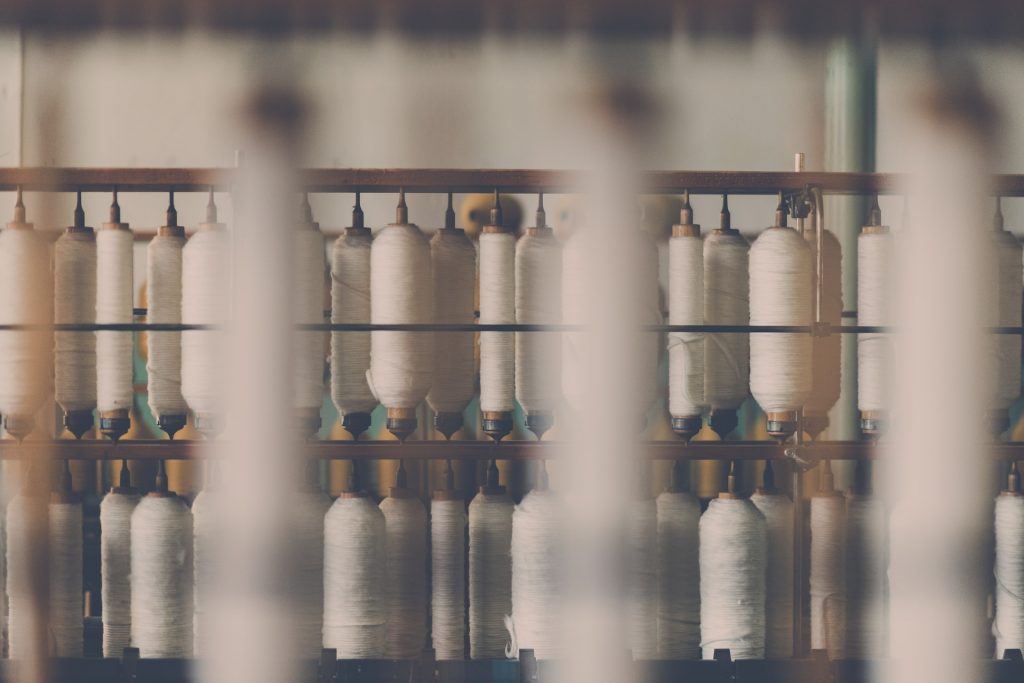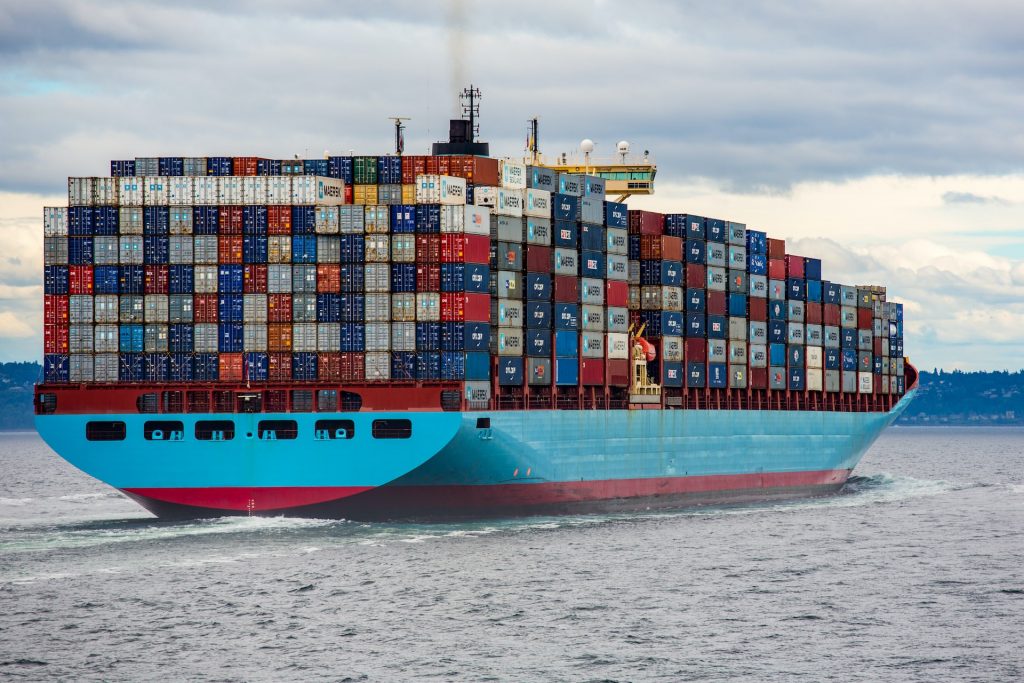Every item of clothing in your wardrobe has a carbon footprint. Big or small, it’s a fact of life that can’t be avoided! Even with carbon offsetting, the CO2 used to produce the clothing is still out there, rocking about in our atmosphere.
This can be a scary thought, but by understanding more about the impact of your fashion choices on the planet, you can take control over the situation and make ethical, eco choices. Let’s start by looking at the footprint of a basic t-shirt.

Sourcing materials for your t-shirt
The first impact your t-shirt has on the planet is right at the materials stage. 60% of clothing in the UK is made from polyester, a fibre that’s derived from plastic, which comes from oil. Polyester never disappears but instead simply breaks down into smaller fibres known as microplastics that wreak havoc on our planet and our bodies (microplastics have been found in human blood!).
To lower the environmental impact of your t-shirt, choose organic cotton instead.
Creating cotton fabrics
The first stage of creating cotton t-shirts is harvesting the cotton, separating it, and pressing it into bales. These bales are shipped to spinning facilities which process the cotton into yarn, which is then sent to the mill where industrial knitting machines and chemical treatments create the soft, white cotton fabric we know and love.

Dying and bleaching cotton
The cotton is then bleached and dyed. Unfortunately, a lot of manufacturers use harmful, synthetic chemicals which can contain lead, chromium, and other nasty substances. Many of these dyes are left to leak into our waterways, polluting marine environments and creating unsafe drinking water for local communities. Wherever you can, choose organic cotton that’s been coloured with plant dyes to prevent this negative impact.
Human hands create your t-shirt
Throughout the process so far, human hands don’t even need to touch the cotton! But, once the fabric is ready to be turned into a t-shirt, machines won’t do. Human labour is needed to stitch and sew your garment together.
This isn’t always done with human rights in mind. Poor working conditions, unfair wages, and even slave labour are all common in the fast-fashion world. Ensuring you source your t-shirts from brands where ethical choices go hand in hand with sustainability is a must for a clear conscience.

Transporting your t-shirt to you
Once the t-shirt is ready to go, it’s loaded onto a ship, plane, or truck to be transported around the world. This adds a huge amount of carbon to the t-shirt’s footprint! But, as it’s also relatively impossible to avoid, carbon offsetting can help at this point. It’s a great solution when carbon emissions are unavoidable, mitigating the effects of shipping your clothing.
The environmental facts
Let’s take a look at some facts about production to show you more about its environmental impact:
- It takes around 3,000 litres of water to produce a single t-shirt
- When growing non-organic cotton, 17 teaspoons of chemical fertiliser and a teaspoon of other chemicals (including pesticides) are used
- Producing an average cotton t-shirt releases around 2kg of CO2 into the air
And that’s just for one t-shirt! Water pollution, land pollution, and air pollution are all major problems in the fashion industry, particularly when looking at high-street brands. But, we all need to wear clothes, so what can we do?
What can you do to reduce the impact of your t-shirts?
Shopping consciously is a brilliant way to create a wardrobe with less of an impact. Find brands that take the planet into account, like ONE Essentials which uses organic cotton and ethical factories, and has many processes in place to reduce the negative impact of its clothing on the planet.
At Finsu, we’ve partnered with a whole bunch of ethical, sustainable brands to make shopping consciously easier! Start browsing through our collections today and become a conscious consumer.
